Solomon Islands National Museum
Based in Honiara, we are one of the oldest cultural institutions in the Solomon Islands. Our mission is to collect, preserve, protect, safeguard, record, and promote the tangible and intangible cultural heritage of the Solomon Islands.
Showing 119 items from Solomon Islands National Museum
Filter by
-
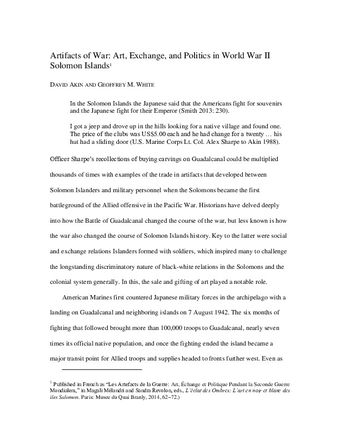 Artifacts of War: Art, Exchange, and Politics in World War II Solomon IslandsSolomon Islands National MuseumText Solomon Islands Online
Artifacts of War: Art, Exchange, and Politics in World War II Solomon IslandsSolomon Islands National MuseumText Solomon Islands Online -
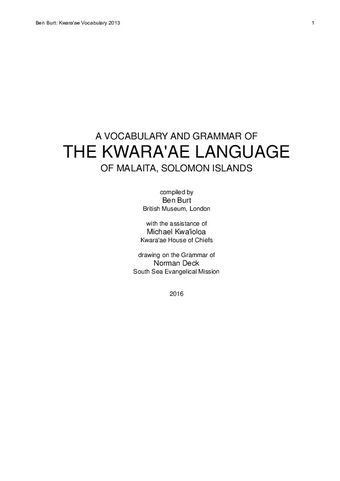 A VOCABULARY AND GRAMMAR OF THE KWARA'AE LANGUAGE OF MALAITA, SOLOMON ISLANDSSolomon Islands National MuseumText Solomon Islands Online
A VOCABULARY AND GRAMMAR OF THE KWARA'AE LANGUAGE OF MALAITA, SOLOMON ISLANDSSolomon Islands National MuseumText Solomon Islands Online -
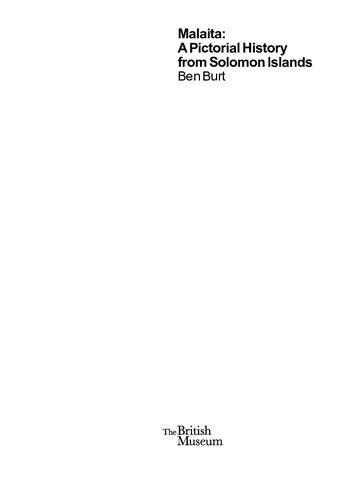 Malaita: A pictorial history from Solomon Islands.Solomon Islands National MuseumText Solomon Islands Online
Malaita: A pictorial history from Solomon Islands.Solomon Islands National MuseumText Solomon Islands Online -
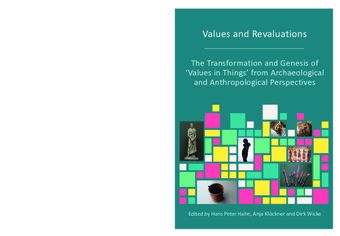 Changing exchange values in Solomon IslandsSolomon Islands National MuseumText Solomon Islands Online
Changing exchange values in Solomon IslandsSolomon Islands National MuseumText Solomon Islands Online -
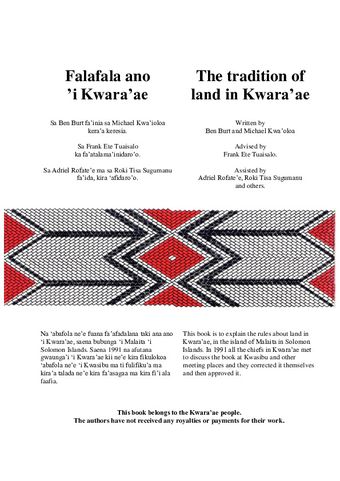 Falafala ano ’i Kwara’ae - The tradition of land in Kwara’aeSolomon Islands National MuseumText Solomon Islands Online
Falafala ano ’i Kwara’ae - The tradition of land in Kwara’aeSolomon Islands National MuseumText Solomon Islands Online -
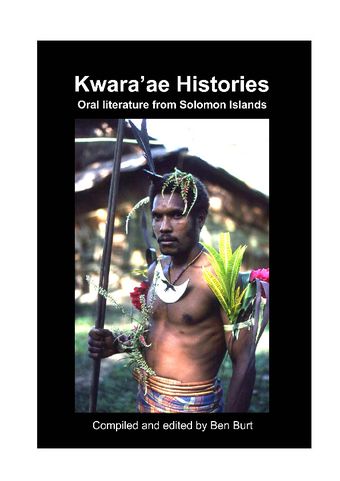 Kwara′ae Histories - Oral literature from Solomon IslandsSolomon Islands National MuseumText Solomon Islands Online
Kwara′ae Histories - Oral literature from Solomon IslandsSolomon Islands National MuseumText Solomon Islands Online -
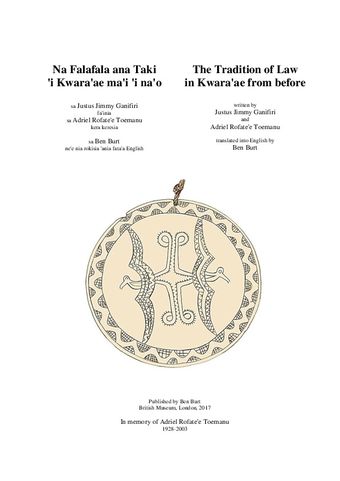 Na Falafala ana Taki 'i Kwara'ae ma'i 'i na'o / The Tradition of Law in Kwara'ae from beforeSolomon Islands National MuseumText Solomon Islands Online
Na Falafala ana Taki 'i Kwara'ae ma'i 'i na'o / The Tradition of Law in Kwara'ae from beforeSolomon Islands National MuseumText Solomon Islands Online -
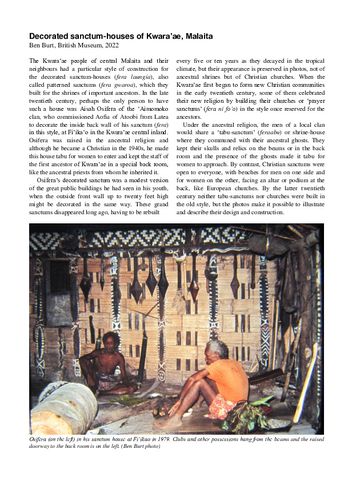 Decorated sanctum-houses of Kwara’ae, MalaitaSolomon Islands National MuseumText Solomon Islands Online
Decorated sanctum-houses of Kwara’ae, MalaitaSolomon Islands National MuseumText Solomon Islands Online -
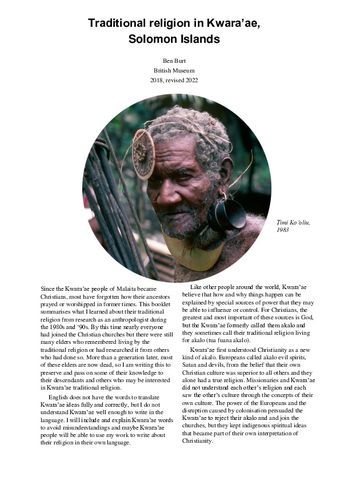 Traditional religion in Kwara’ae, Solomon IslandsSolomon Islands National MuseumText Solomon Islands Online
Traditional religion in Kwara’ae, Solomon IslandsSolomon Islands National MuseumText Solomon Islands Online -
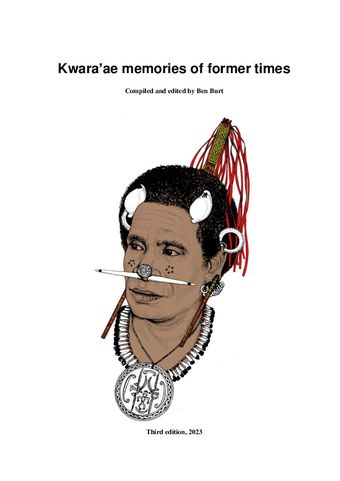 Kwara’ae Memories of Former TimesSolomon Islands National MuseumText Solomon Islands Online
Kwara’ae Memories of Former TimesSolomon Islands National MuseumText Solomon Islands Online -
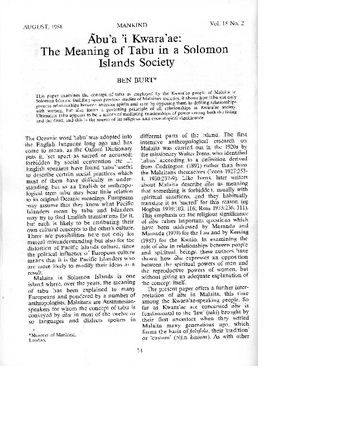 Abu'a 'i Kwara'ae: The meaning of tabu in a Solomon Islands societySolomon Islands National MuseumText Solomon Islands Online
Abu'a 'i Kwara'ae: The meaning of tabu in a Solomon Islands societySolomon Islands National MuseumText Solomon Islands Online -
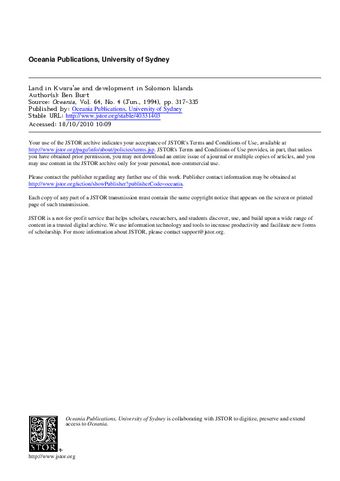 Land In Kwara'ae and Development in Solomon IslandsSolomon Islands National MuseumText Solomon Islands Online
Land In Kwara'ae and Development in Solomon IslandsSolomon Islands National MuseumText Solomon Islands Online
Results per page
Solomon Islands National Museum
Welcome and warm Pasifik greetings
The information on this site has been gathered from our content partners.
The names, terms, and labels that we present on the site may contain images or voices of deceased persons and may also reflect the bias, norms, and perspective of the period of time in which they were created. We accept that these may not be appropriate today.
If you have any concerns or questions about an item, please contact us.